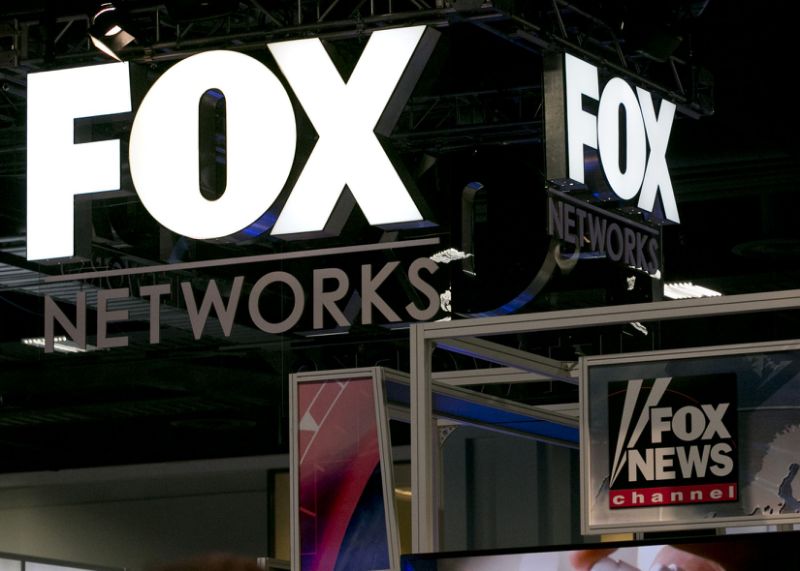(Bloomberg) — House lawmakers castigated major tech companies for being unfair gatekeepers to content produced by traditional media outlets, but they didn’t agree on specific actions to address possible anticompetitive behavior.
Representative David Cicilline, the Rhode Island Democrat who leads the House Judiciary antitrust subcommittee, kicked off a broad inquiry into the technology industry by focusing on how the news business is treated by giant platforms such as Facebook Inc. and Alphabet Inc.’s Google.
“In recent years, there’s been a cascade of competition problems in the internet,” said Cicilline in his opening remarks. “Concentration in the digital advertising market has pushed local journalism to the verge of extinction.”
The lawmakers criticized the internet giants for a long list of grievances, including their dominance in the digital ad market, the spread of misinformation on their platforms, their acquisitions of smaller rivals and their handling of users’ personal information. The number of topics covered in the hearing and the lack of significant partisan bickering indicated the House lawmakers are willing to carry out a deep probe of the industry.
“There is a whole range of issues about the ways these markets are not working and what Congress can do to make them work,” Cicilline told reporters after the hearing.
The panel heard from News Corp.’s general counsel David Pitofsky, the Atlanta Journal-Constitution’s editor Kevin Riley and Matt Schruers, a vice president of the Computer & Communications Industry Association, an industry trade group, among other witnesses.
“The marketplace for news is broken,” Pitofsky said in his testimony. He criticized what he described as “free-riding by the dominant online platforms,” which he said have diverted advertising dollars away from the companies that created the content and into their own coffers.
Pitofsky pointed out that the lack of competition in online advertising markets means 30 cents of every dollar reaches publishers, with the rest going to the internet platforms. That in part has pushed publishers to adopt subscription-based business models, only to find their content demoted in the platform’s search results.
“Dominant online platforms control the infrastructure, data, and tools for news publishers to sell and serve online ads, while simultaneously competing against those publishers for the very same ad dollars,” Pitofsky said. “This presents a significant conflict of interest.”
Rupert Murdoch, an ally of President Donald Trump, owns News Corp., which holds media and broadcasting properties including the Wall Street Journal, the New York Post, and the book publisher HarperCollins. He also controls Fox News through Fox Corp.
House Judiciary Chairman Jerrold Nadler, a New York Democrat, said “this journalism crisis is also a democracy crisis.” He added that the the two online platforms have immense control over how Americans get their news. “As sources of trustworthy news disappear, American civil life suffers,” he said.
Richard Gingras, vice president of news at Google, said in a statement before the hearing that the search giant has driven more than 10 billion “clicks to publishers’ websites” each month and launched several projects to support the industry.
“We’ve worked for many years to be a collaborative and supportive technology and advertising partner to the news industry as it works to adapt to the new economics of the Internet,” Gingras said.
Some of the lawmakers questioned whether the Justice Department or the Federal Trade Commission, which share a mandate to enforce antitrust laws, have been aggressive enough, particularly in scrutinizing mergers by technology giants that allowed them to increase their dominance.
Representative Pramila Jayapal, a Washington State Democrat, noted that the FTC waved through Facebook’s acquisitions of WhatsApp and Instagram as well as Google’s purchases of Applied Semantics Inc. and DoubleClick Inc., which allowed the search giant to extend its control of the digital advertising market.
Ciclline’s inquiry is taking its first steps just after news emerged last week that the Trump administration’s top antitrust officials have divided up scrutiny of Google, Apple Inc., Facebook and Amazon.com Inc. The Justice Department’s antitrust division will examine Google and Apple, while the Federal Trade Commission will look into Facebook and Amazon.
The Justice Department’s antitrust chief, Makan Delrahim, also came out swinging against Google and Amazon Tuesday, arguing in a speech that big technology companies are “digital gatekeepers” that may struggle to defend themselves by arguing their products are free or really cheap.
The developments are increasing pressure on the tech giants, already under fire in Washington over Russian interference in the 2016 presidential campaign and data breaches, and come while Congress is trying to draft a tough federal privacy law and to hold technology companies responsible for the content disseminated by their services.
For more: Big Tech Is Armed and Waiting to Repel U.S. Antitrust Onslaught
Cicilline and Representative Doug Collins, a Georgia Republican and ranking member on the full House Judiciary Committee, have presented a bill that would allow publishers to collectively negotiate financial terms with tech companies such as Google and Facebook. The legislation would offer news outlets a reprieve from antitrust laws for 48 months after the bill is enacted.
Riley of the Atlanta Journal-Constitution emphasized the need for local journalism to thrive by pointing to his newspaper’s years-long coverage of the Atlanta public schools cheating scandal, in which teachers and administrators were found to have received bonuses based on bogus student test scores.
“Too often, the debate about media and tech platforms is framed within a discussion of international news brands,” he said. “But the greatest peril for our nation lurks at the local level, where a regional or community paper must cope with a fast-changing technological and financial landscape.”
To contact the reporters on this story: Naomi Nix in Washington at [email protected];Ben Brody in Washington at [email protected]
To contact the editors responsible for this story: Sara Forden at [email protected], John Harney
<p class="canvas-atom canvas-text Mb(1.0em) Mb(0)–sm Mt(0.8em)–sm" type="text" content="For more articles like this, please visit us at bloomberg.com” data-reactid=”68″>For more articles like this, please visit us at bloomberg.com
©2019 Bloomberg L.P.














